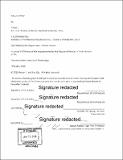Amazon here
Author(s)
Li, Anran,M. ArchMassachusetts Institute of Technology.; Qiu, Yue,
Download1121452249-MIT.pdf (42.73Mb)
Other Contributors
Massachusetts Institute of Technology. Department of Architecture.
Advisor
Jennifer W. Leung.
Terms of use
Metadata
Show full item recordAbstract
Tech companies, bearing money, jobs and innovations assume state-level responsibilities and take on projects that address urban issues. Uber rethinks public transit; Google Sidewalk Labs designs Toronto's waterfront with integrated mobility system; Elon Musk's Boring Company privately funds a rapid transit line from O'Hare Airport to downtown; Amazon provides CIA data and security services for sensitive information. Willingly or reluctantly, governments are handing over civic infrastructure to these companies. While reshaping the public realm at an unprecedented pace, tech companies also put public spaces at risk. In negotiation of mega-corporation tenancy, as seen in Amazon's RFP for its second headquarters, space becomes a bargaining chip between misaligned agendas of companies and governments. This thesis investigates the unusual architectural opportunities this risk could bring to the city, the corporation, and the citizens while acknowledging that machines, supported by automation, are progressively reorganizing our environment and we are surrendering our control in gradual but consequential ways. Amazon Here is our case study in the urban context of Chicago, an abandoned historic building retrofitted into a densely-packed, hyper-efficient machine that weaves together business and public-oriented spaces. This hypothetical development pushes for a model in which corporate-sponsored public architecture operates as the fourth industrial revolution's version of a company town, balancing Amazon's interests with those of the community. In this experimental model, public space is a negotiation for corporate and civic interest; hefty logistical infrastructure normally hidden behind closed doors now becomes part of the new urban experience, transforming the industrial warehouse into a spectacle for all.
Description
Thesis: M. Arch., Massachusetts Institute of Technology, Department of Architecture, 2019 Cataloged from PDF version of thesis. Includes bibliographical references (page 203).
Date issued
2019Department
Massachusetts Institute of Technology. Department of ArchitecturePublisher
Massachusetts Institute of Technology
Keywords
Architecture.